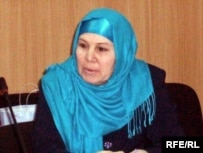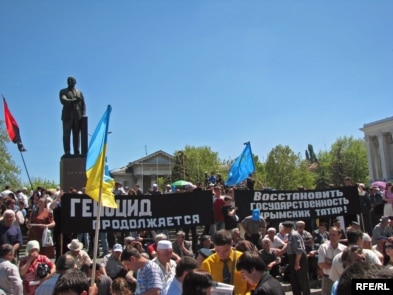New monopolar world system had created new interests which depend on big powers in Caspian region after the collapse of Soviet Union. This situation shared a chaos on governmental system in this area. Big powers created a competition with Caspian Sea status and energy subjects to use their interests. Dominant power of the USA and Russia shared some conflict and cooperation circumstances as interdependent body in their relations. Particularly common threat position establishes cooperational theme. Caspian region which is second big energy sphere is a bridge between Europea and Asia, also it is a main point of the world domination conditions.
Subjects of Confrontation and Hegemony Tools
Big powers need conflict, cooperation and hard-soft balance tools as political subjects to increase their activity in the region. The USA and Russia have enough advantages according to their situation. But confrontation of powers can be transformed to common interest activities so to analyse foreign politics of states can provide to know near future. Today anxieties of the USA’s foreign affairs to Russia are existing as these subjects:
– Monopoly situation of Russia in energy area,
– Against position of Russia to NATO enlargement,
– Russian force to Georgia,
– Possibility of same circumstances to post-Soviet states by Russia,
– Against position to Western initiatives about Iranian nuclear system.
The USA used soft balance politics to Saudi Arabia and forced in Iraq to control Middle East which is first big oil sphere in the world. The USA supported first energy sharing agreement BTC in 1994 and for saving energy corridor it founded GUAM to be against CIS organisation about the subject of influence to Central Asia. The USA which a country had acted firstly in energy line plans to establish new cooperations to be dominant power in the region. American supported regional organisation GUAM targets new cooperations with West and to solve regional conflicts with Europen initiated projects. Also GUAM organised first military operations which Russia didn’t join. But Russia created a dilemma over the European energy corridor target of this organisation. Russia works to establish alternative energy lines and coordinate near abroad countries to common aims.
Russia had an advantage to pressure over the post-Soviet states with energy event. Middle Asian countries which have big energy resources provide energy transportation via Russian territory. External projects are American supported issues. Shortly there is a competition that energy is used as a weapon.
The USA interfered Afghanistan after the 11 September terrorist attack by this way the super power took a strategic point in Middle Asia. The USA shared a dangerous position for Russia because of the USA founded military points in Uzbekistan, Tajikistan and Kyrgyzistan after the Afghanistan intervene. So Russia organised Shangai Cooperation Organisation to build an alternative body against the USA with other regional states. It shares a bandwagoning system for this region which had been established by Russia as a main actor.[1] By this way Russia that is a main state of CIS shared strong resist against the USA with its initiatives.
Bilateral agreements in NATO circle with the USA of Caspian states formed a dependent system to West. In this subject Georgia had been a pro-American arena in this region.[2] On the other hand Azerbaijani and American relations increased after annuling 907. article in the USA that has supporting event to South Caucasus states without Azerbaijan. Russia and Iran speeched as against the USA after opened airspace of Azerbaijan to the USA. Additionally security of BTC is important to the USA. New American forces in Romania and Bulgaria can intervene Caucasus area if there is a problem in Baku Ceyhan pipeline. Also American soldiers in Georgia can be used in emergency circumstances.[3]
Russia said possible intervenes of Collective Security Cooperation of Shangai Cooperation Organisation to NATO’s activities in this region as against the military activation of NATO. Other advantages of Russia are conflict events as without regional cooperations against NATO. Fergana, Osetia, Abkhazia and Karabakh issues give chances to Russian invasion on the region. Because solutions can be producted by Russian mediator situation. Otherwise western initiated organisation GUAM targets that solutions can be existed without Russia. Nobody can guarantee that Russia will not save its interests about regional conflicts in Ukraine-Crimea, Moldova-Transdiester, Azerbaijan-Karabakh as additionally Georgian conflicts. For this moment Russian conflict politics focused on Georgia in South Caucasus area. Abkhazia and Osetia problems are punishments to Georgia by Russia because of Georgian new Western oriented politics.
Bandwagoning countries rejected American activities after 2004. These countries supported Russian decisions against to the USA after this date. European Union continued its enlargement politics in Caspian as paralel to American issues. Caspian states easily can depend on West with some projects like Nabucco. Specially European Union projects TACIS, INOGATE[4] and TRACECA[5] can create influence over the regional countries like other cooperational acts. New resist of Caspian states’ outlook shares itself as internal cooperation and contr-politics of Russia. Also America can take an advantage in Caspian status problem against to Russia.
Obligatory Cooperations in the Region
There is no possible way to fight new movements’ expansion in the region of Russia which is a problem of American foreign affairs. Struggle to terrorism that is in directly Iraq, Iran and Afghanistan is a main aim of the USA political issue in Middle Asia. There is a Russian anxiety about results of possible conflict between the USA and Iran. Additionally Russia doesn’t want cooperations of these countries[6];
– Iran can buy weapons and nuclear technology from the USA,
– The USA can approve oil and gas transportation via Iran as alternative to Russia in Caspian sphere,
– The USA won’t need Russian support in struggle against Iran issue.
The USA is a main power about struggle to terrorist movements in this region. Also Russia trusts this power in this subject and main result of that is American military foundation by permission of Russia. There is a new progress to decrease American influence in Manas military point’s closing process. But it can be a start line of enlargement terrorist activations which is Russia’s afraid. There is a different situation in East Europea initiative of the USA about military approach. It shares an interdependent relation among great powers. President Bush again gave his assurance that the proposed American missile shield was not aimed at Russia. NATO summit in Bucharest, Russia scored a partial victory on the question of expanding the alliance. NATO did not invite Ukraine and Georgia, both former Soviet states, onto its Membership Action Plan.[7]
At the present time in which cold war rivalry is waking up, Caspian region is becoming a field of conflict at the same time a collaboration in view of energy resources and military cooperation to activate grand forces’ sovereignty. Cooperation needs occured by common benefits cause means used to reduce another one’s activity. In this backgroung that power balances are occured outside the states of Middle Asia, bandwagoning countries which got free of being unrelated to others may cause new situations. Of course all the same, political declinations, which work directed by Mackinder’s Heartland Theory, have the ability to form new balances in this region. Athority of the region countries which have rich resources will indicate that the world will being run by how many poles.
[1] Walt, Stephen M. (1987). The Origins of Alliances. Ithaca, NY: Cornell University Press
[2] Klare Michael T., “Transforming the American Military into a Global Oil-Protection Service”
[3] Purtaş Fırat, TÜRKSAM, “Hazar Bölgesinde Rekabetin Yeni Boyutu: Silahlanma Yarışı”
[4] There are at present 21 countries which have acceded to this agreement with the EU (Albania, Armenia, Azerbaijan, Belarus, Bulgaria, Croatia, Georgia, Greece, Kazakhstan, Kyrgisztan, Latvia, Macedonia, Moldova, Romania, Slovakia, Tajikistan, Turkey, Turkmenistan, Uzbekistan, Ukraine and the Republic of Serbia).Thus, all of them have agreed to cooperate towards the establishment of one or several systems of oil and gas pipelines which pass through their territories, while observing the jointly accepted rules embodied in the agreement.
[5] Saraç Naciye, AZSAM “Tarihi İpek Yolu Yeniden Hayata Döndürülüyor”
[6] Prof. Dr. Mark Katz, “The Role of Iran and Afghanistan in US-Russian Relations”
[7] “Bush and Putin’s bittersweet farewell”, 06.04.2008
Mehmet Fatih OZTARSU
Baku Qafqaz University
International Relations








